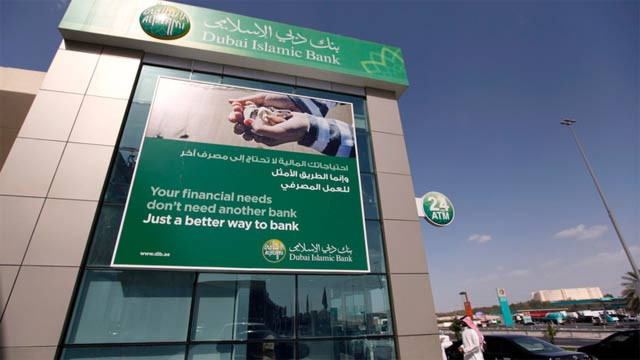Delinking Islamic banking from interest
SBP has taken a number of steps to improve authenticity of Islamic financial products

SBP has taken a number of steps to improve authenticity of Islamic financial products. PHOTO: REUTERS
This attracts criticism from those who otherwise have serious doubts over viability of Islamic banking and finance as an alternative to interest-based conventional banking and finance. The users of Islamic financial services also show dissatisfaction with the use of interest as a benchmark.
Officials stress on growth of Islamic banking in Pakistan
The State Bank of Pakistan (SBP) has taken a number of steps to improve authenticity of Islamic financial products. In 2014, it sponsored a detailed study on Knowledge, Attitude and Practices of Islamic Banking and Finance in Pakistan, known as KAP Study.
It was conducted by a research team headed by Dr Farooq Haq. The study also identified dissatisfaction over the use of Karachi Inter-bank Offered Rate (Kibor) as a benchmark. On September 7, 2016, the SBP issued a directive allowing Islamic banks to benchmark their products based on participatory modes – known as Musharaka and Modaraba - and Wakala-based agency, with respect to an index other than Kibor.
This is a historic development that will allow Islamic banks to delink themselves from the interest rate mechanism. It will also allow Islamic banking to be more Shariah authentic for which Pakistan is already respected in the international markets.
SBP Deputy Governor Saeed Ahmed is expected to receive a special award at the Global Islamic Finance Awards to be held at Jakarta on September 29. This award acknowledges his personal initiative and advocacy role to promote Islamic banking and finance in the country.
While the likes of Finance Minister Ishaq Dar have received accolade for their efforts to promote Islamic banking, there is a need to acknowledge roles of bodies like the Department for International Development (UK) that sponsored the KAP Study and individuals like Dr Farooq Haq who conducted the study.
KAP Study has played an instrumental role in many recent developments in Islamic banking and finance in Pakistan. The establishment of three centres of excellence at the Institute of Business Administration (IBA) Karachi, Lahore University of Management Sciences (Lums) and Institute of Management Sciences (IMSciences) Peshawar is a direct outcome of the KAP Study.
In the recently concluded World Islamic Finance Forum at the IBA, a number of leading personalities and individuals from around the world were invited. However, many organisations and individuals who have been instrumental in the development of Islamic banking in the country were not represented.
Malaysia replaces Pakistan as leader in Islamic banking, finance
Increasing influence of one religious school of thought (particularly one seminary in Karachi) in Islamic banking and finance is also frowned upon by many industry observers. This trend is certainly not healthy, despite huge achievements the SBP as a regulator has made.
If the trend continues, it will polarise Islamic banking and finance in the country on a sectarian basis, something the global Islamic financial services industry has so far successfully avoided.
While it is absolutely imperative that the SBP remains friendly with Islamic banking institutions, it is equally important that it provides a level-playing field to all banks – whether Islamic and conventional – which are involved in Islamic banking and finance.
With comprehensive engagement with all stakeholders in Islamic banking, the government and SBP can bring this latest initiative – delinking of Islamic financial products from Kibor – to the attention of the international Islamic financial community.
The London-based Global Islamic Finance Awards have identified achievements of a number of Pakistani banks involved in Islamic banking. In this year’s awards ceremony to be held at Jakarta, at least two banks from Pakistan will receive awards for their contribution to the development of Islamic banking in the country.
The writer is an economist and PhD from Cambridge University
Published in The Express Tribune, September 12th, 2016.
Like Business on Facebook, follow @TribuneBiz on Twitter to stay informed and join in the conversation.


















COMMENTS
Comments are moderated and generally will be posted if they are on-topic and not abusive.
For more information, please see our Comments FAQ